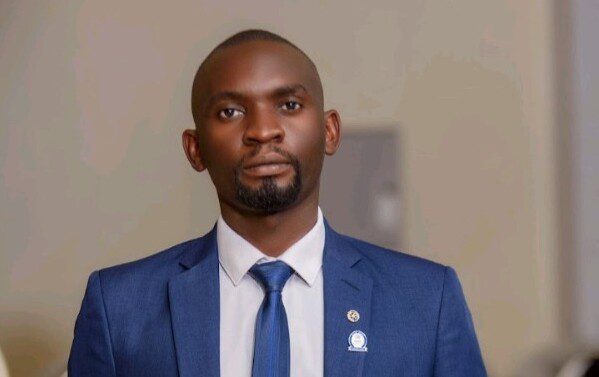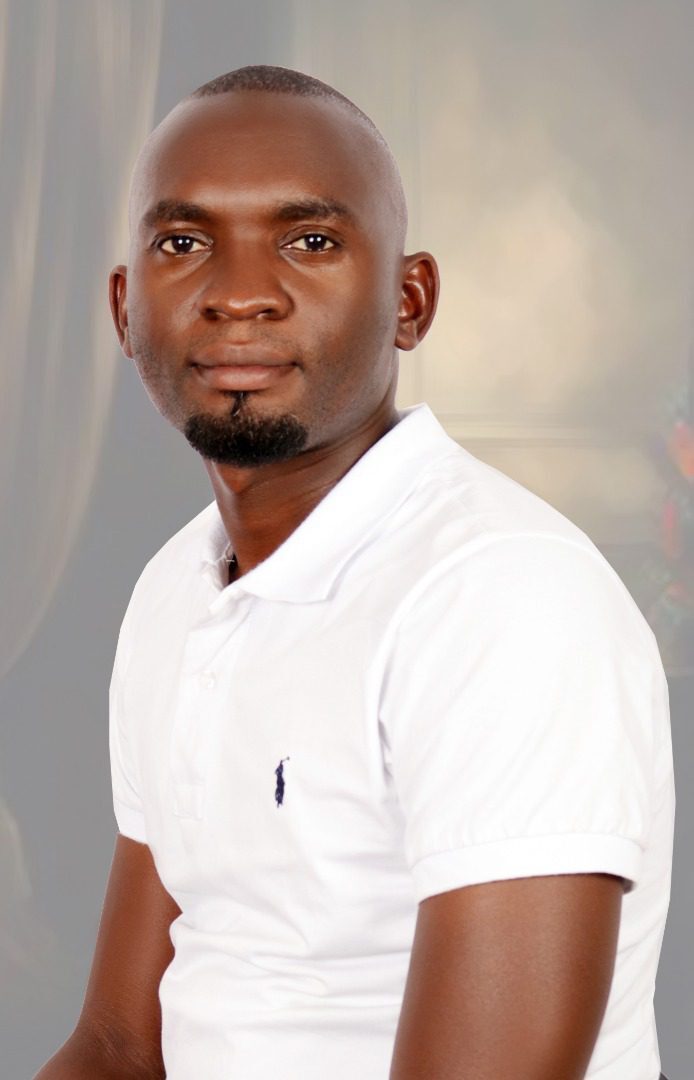
The Transformative Moon Walker
Ismail Muyinda is a Ugandan lawyer, marketer, researcher, strategist, climate change activist, mentor, renewable energy expert, and brand enthusiast. From a child who used to hide in the latrine for fear of debates and arguments, because he didn’t know English, he now sit on panels, addresses multitudes, wins awards, writes award-winning proposals and changes lives.
Ismail Muyinda was born on the night of 23 November 1984 to the late Mrs Nakafero Mariam Muyinda and the late Mr Abdul Muyinda. This was in a banana plantation with only the cover of moonlight at night in a village called Kyerereze, Kapeka, Luwero District. He added the name ‘Moon Walker’ to his name because if the moon hadn’t been visible that night, his parents wouldn’t have made it to the hospital. “Because of moonlight, I am alive.”
He adds: “My mom got contractions in the middle of the night. Being a village, there was only one bus available and it was due the following day at 6:00 am. The nearest hospital was in Kapeka, twenty kilometres away. At the time, the National Resistance Army insurgency was also at its peak. Therefore, no one would have dared to move at night, for fear of being labelled a rebel or a rebel conspirator. The only option was to call for a local maiden to help her deliver the bouncing baby boy who had been kicking in her womb for about three hours.”
Early life
Ismail used to walk eight kilometres, barefoot, from Kyerereze to Singo Army barracks to school. It was an army school and everything was provided for free by the government; this is before UPE (Universal Primary Education) was introduced in most schools in 1997. They would get free books, pencils, and porridge. He recalls how school was fun, with most of the students being children of army soldiers who often witnessed the recruits’ training and the hardships they were put through. “Being a soldier is not easy,” he says.
In 1995 towards the end of the year, his dad bundled him and the entire family into a minivan. This was to an unknown destination that he later confirmed was Ntinda.
He remembers how it was raining the day they arrived in Kampala. Their minivan struggled to enter the compound, leading to the mattress falling off, which he had to chase after. Ntinda was an uptown neighbourhood with TVs, electricity, and street-smart kids. He had four step-siblings and he was the oldest. “I ate bread with Blue Band (margarine) for the very first time that day when a lady I wasn’t acquainted with served us milk tea with bread.”
Being in a new place, he stayed indoors for a whole week without stepping outside. Once he did, a week later, he was amazed by what he saw in the city; very upscale shops, supermarkets, fuel stations, and video halls. The only way one could afford those things was with money. Having struggled in the village and walked to school barefoot, he didn’t want to do the same here. He needed to make money. He met a street-smart kid, Billy, who soon became his friend and taught him how to make money. “The lessons he taught me are still a part of me which I still practice,” he states.
“If you want to earn follow my lead,” he told Ismail. They started hanging out together and would approach different houses and offer to fetch water for them. In the village, water was free. Here, it was bought and people paid to carry it home. A jerrycan of water was about one hundred shillings while carrying it was another hundred. The more jerrycans you ferried, the more money you got. On the first day, he earned five hundred shillings (less than a dollar).
He bought chapati for 200, katunda juice (passion fruit juice) for 100, and saved the rest. The following day he was more eager because he wanted to make more, which he did. They upgraded their services to garbage collection, mopping salons, video halls, and anything that could bring them money. “I am grateful to him because he taught me a valuable lesson that has helped me to earn up to date. I owe him because I am probably who and where I am thanks to him.”
The Government introduced UPE in 1997, when he was starting P.4, so his parents had to pay around 11,000 shillings (about three dollars) for fees and food. “My son,” his father told him, “You see I have to cater for your siblings so I can’t do much for you. The only thing I can do is pay your fees. The rest, you must find a way.” He advised him to study up to P.7 and then join PTTC (primary teachers training college). “I didn’t want to become a teacher. I wanted more, and I wanted to explore the world,” he tells me.
School Experiences
While at school, Ismail had a polythene bag where he put his books and had the poorest shoes until S4. In school, he struggled to read and speak, was very clumsy, and felt like he didn’t belong. He always felt isolated. He remembers hiding in the toilets every Friday because they always had a debate after lunch. He did this because he couldn’t speak English fluently and everyone needed to participate. Whenever he got into trouble at school, he would just lie down and accept the caning without resisting because he couldn’t defend himself.
He never participated in any school trips because they were expensive and his dad couldn’t afford them. He also used to watch his classmates on a quiz program on their neighbour’s black and white TV. So, he had to hustle by doing what he did best—carrying water and collecting garbage. Due to the growth of his sources of income, he was able to earn enough to buy himself books, pens, pencils, sets, uniforms, and other supplies he needed.
Since he was poor in the sciences, he decided to focus on the arts. He got promoted to S.4 and was admitted to City High School, which was for the wealthy. His dream was to get stellar grades so that he could enrol at university on a government scholarship. By that time, in 2004, he had started a chapati business in Ntinda, Bukoto, and other places. He became active at school, learnt English, joined UNSA (Uganda National Students Association) and the debate club, and represented his school at the national level.
“I got my first leadership position as a house prefect on merit (I didn’t campaign). I passed my S.4 with a division one and later joined St. Peter’s Naalya, where I emerged as the second-best student with 22 points in HEGD/ACBA/1,” he recalls. Though he didn’t get the government scholarship, he was admitted to the most prestigious university in the country, Makerere University, for a Bachelor of Laws on private sponsorship, graduating in 2010 with second-class honours.
When he finished campus he made lots of friends because he used to tutor and hold discussions with many students, with some becoming his personal friends. Some of them preferred him to their lecturers. “I don’t know if I was that competent, but I know of two people who refused to attend lectures knowing I would teach them and make them pass.” Those two had five retakes in the first year and were in their second. That means out of a possible ten points, they had only passed five.
So he had to teach them the present second-year material and the previous years’ work. Luckily both excelled and are now big shots in government. Interestingly, every student who had a retake or any issue with their course started coming to him. “I remember doing a Master’s thesis for someone at a foreign university, whom I never met, for which he passed. I got his contact from an acquaintance. The thesis was about human trafficking and since I am an expert at handling human trafficking cases and identifying them, it was a walk in the park for me.”
Road to Renewable Energy
In 2012, Ismail was called upon to join a special program that had been introduced by the Ministry of Energy and Mineral Development with support from the German Agency for International Cooperation (GIZ) called the Energy Explorers Project. “It was an innovative, informative, entertaining, and educative campaign that focused on creating awareness of climate change, renewable energy, and energy efficiency in schools. We engaged with over 500 schools across the country, spreading the gospel of climate change. Youth awareness is the most effective way to create awareness of it among adults. We did that through storytelling, dance, art, drama, and music. It was one of the most successful campaigns I have ever worked on to date.”

Funds for the project ended in 2016, bringing an end to it. He decided to return to school, the Uganda Management Institute (UMI) and completed a Certificate in Project Planning and Management. He wanted to meet different people, interact and build new networks. After his course, he started Energy without Borders in April 2017. The idea was to continue what he was doing before but a bit differently. He wanted to take not just the message of climate change, renewable energy, and energy efficiency to the people, but the products as well. Rather than focusing on just schools, he expanded the concept to cover communities.
“Energy without Borders is the most successful project I have ever created. I was able to feed myself and my family and even bought my first car, a super custom minivan. With it, we promoted and sold over 20,000 improved cookstoves and 10,000 solar systems. We also organised over 15 trade shows, one marathon, and about 64 market activations across the country. This was in Jinja, Mbale, Soroti, Lira, Karamoja, Arua, Gulu, Kitgum, Pader, Agago, and Mbarara, just to mention a few. I have been to every district and local market in Uganda,” he says.
“I have worked with USEA indirectly since 2014. However, in 2016, I was commissioned as a consultant, under Energy without Borders, to develop and execute a market awareness campaign. So far, this has been the most successful energy access awareness campaign in Uganda. It is dubbed Let’s Go Solar. We implemented this campaign alongside our partner, CREEC, which handled the training of technicians. In 2021 I joined USEA as Business Development Officer to support the establishment of the productive use of energy (PUE) cluster. I am currently serving as a team leader and project director. I am working on the development of a national roadmap for scaling the productive use of renewable energy, food security, and economic empowerment. This will be the document that will guide the entire country in productive use.”
“I have organized and sold the most renewable and energy-efficient technologies in Northern Uganda in Kitgum, Lamwo, Pader, Agago, and Lira districts. Energy without Borders, in partnership with the Lutheran World Federation, organized and implemented six annual fairs known as the Teko Wa sustainable energy campaigns. I saw people’s lives change when they acquired these technologies and the environment was saved. I am very proud of it. The second is Uganda Water and Environment Week, currently in its sixth year, under the Ministry of Water and Environment whose concept and direction were developed by me.”
Message for the Youth
“As I mentioned, someone helped and showed me how to make money when I was young. Energy without Borders employs twelve youths temporarily but works with many others whenever we have any activities. I once paid one of them with a cheque for one million shillings. He took a picture and still shows it off as a testimonial,” he says. “Ismail got me off the streets and gave me a job and my first cheque. I didn’t even have a bank account but because of him, I had to get one,” the young man says enthusiastically.
“I love working with the youth,” Ismail continues. “And whenever I get an opportunity, I call upon them and share my story with them. I want them to learn a thing or two from me. When you asked for this interview and you told me you wanted to share my story with the youth out there, I didn’t hesitate. I hope someone will learn a thing or two from reading this story.”
“We live in the fastest-growing digital era known to man, so the youth have to think ten times faster than we did. They have to be ahead of the game. I tell people, in every problem, there is an opportunity. When Covid hit us, Eric Yuan developed Zoom for meetings and he is currently valued at more than 3.3 billion dollars. As Charles Caleb Carlton said, “Times of great calamity and confusion have been productive for the greatest minds. I am currently working on a project called the EM-Power campaign which is going to be the biggest project to employ youth and women in Uganda and is expected to change many lives. Energy without Borders has also shifted her attention and focus to E-Waste management. As they say, old habits die hard. E-waste is the new gold.”
“Starting a business is one of the easiest things for anyone to do. The hardest part is keeping it running and getting customers. If you are not strong, you will not manage and will give up. I have started several businesses, some of which failed and others succeeded. The general rule for every business owner or starter is that you have to give your business 10,001 days before you get any profits from it. I have failed so many times, but that number is inconsequential to me. What matters is how many times I have stood up and started a new one.
I now have brands I can speak of, Bakery Delight (pastries), Moonwalker Lives (clothing line), and my favourite, Energy without Borders. From carrying jerrycans, collecting garbage, mopping video halls/salons, and making rolex (street food), to becoming a company CEO. I have been able to travel to countries and cities that I only used to read about or see in movies. I have climbed the pyramids, cruised on the Nile, and stepped into the Red Sea. So, every time you feel like giving up, just hold on a little longer,” he concludes.

Leave a Reply